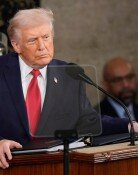Fourth-rate politics and third-rate administration remain unchanged in S. Korea
Fourth-rate politics and third-rate administration remain unchanged in S. Korea
Posted October. 27, 2020 07:52,
Updated October. 27, 2020 07:52
The passing of the chairman of Samsung Electronics Lee Kun-hee offers an opportunity to reflect on the level of South Korean politics, administration, and businesses. Lee described South Korea’s politics, administration, and businesses as fourth-rate, third-rate, and second-rate, respectively, to correspondents from Beijing in 1995. This comment triggered a special tax audit of Samsung Group. However, he still said that good ratings could not be given to them in response to the same question two years later.
Twenty-five years later, what would Lee say if he were asked the same question? Samsung has overtaken Japan’s Sony and become a company with many world-leading products, such as smartphones, semiconductors, and TVs. Other South Korean companies, including Hyundai Motor Company, SK, and LG, have joined the ranks of the world’s leading companies with remarkable development.
Meanwhile, the competitiveness of fourth-rate politics and third-rate administration seems to have not taken a single step forward. The National Assembly and the administration pour out a number of regulations almost on a daily basis, which create hurdles for major South Korean companies that are entering the global market and drive out robust small- and medium-sized companies overseas, making the country less hospitable for businesses.
The gap between businesses and politics exists everywhere, but that of South Korea is especially large. South Korean companies could become the world’s top companies because they were desperately looking for innovation with a sense of crisis that things could fall apart. In addition, they have been consistently looking for and nurturing new growth areas for the future, such as semiconductors, smartphones, batteries, displays, and hydrogen cars. Meanwhile, the political circles have been caught up with ideology and conflicts between opposing camps, rather than practicality and skills, as well as upcoming elections, rather than the future. As seen in the cases of TADA and remote health care services, they would call for deregulation yet turn away at any point if they seem to be losing votes. As a result, despite how much the importance of the fourth industrial revolution is mentioned in politics, South Korea is lagging behind in global trends, such as the sharing economy.
It is almost comedic to watch those in politics and administration rule over and tell businesses what to do. The know-how of businesses that have survived crises and transformed themselves into top-class companies should be passed down to politics and administration. How long do they need to be told that South Korea’s businesses are world-class while its politics and administration are stuck in the past?






![‘부화방탕 대명사’ 북한 2인자 최룡해의 퇴장 [주성하의 ‘北토크’]](https://dimg.donga.com/c/138/175/90/1/wps/NEWS/IMAGE/2026/02/27/133414028.1.jpg)
